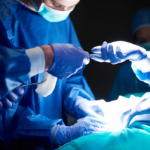
The eruption of wisdom teeth, or third molars, typically occurs between the late teen years and early 20s in humans. However, some adolescents and young adults experience unusually early emergence of these final molars, sometimes as early as 14 years old. The underlying causes of such premature wisdom teeth development stem from a combination of genetic, hormonal, nutritional, and inherited dental factors.
Genetic Predispositions
Certain ethnic groups, such as African Americans and Hispanic populations, tend to have early and impacted wisdom teeth in high frequencies compared to Caucasian groups. As a dentist performing wisdom teeth removal in Woodbridge says, this suggests that certain genetic predispositions strongly influence the timing and positioning of wisdom tooth formation. Specific inherited traits that lead to insufficient jaw size or mismatched tooth-to-jaw proportions can cause crowded, poorly aligned wisdom teeth that emerge too soon and get stuck as a result.
Pubertal Hormonal Surges
The onset of puberty occurs 1-2 years earlier on average in modern society due to improved health and nutrition. The adolescent growth spurt that accompanies puberty involves elevated levels of reproductive hormones that can stimulate the eruption sequence of teeth, including wisdom teeth. So, the surge of growth-related hormones that accelerate physical and sexual development in the teen years may also jumpstart wisdom teeth growth and emergence before the jaws finish maturing.
Dietary Factors and Oral Health
With improved childhood nutrition and oral hygiene in recent decades, more teens retain healthy sets of molars without extractions or decay issues. Thus, well-preserved jaws provide ample space for wisdom teeth to begin forming in some adolescents, leading to abnormally early development. Refined carbohydrates and added sugars in teen diets may also influence hormonal balances in ways that spur accelerated dental growth. Meanwhile, a rise in soft, processed foods can lead to underdeveloped jaw muscles and poor chewing demands, resulting in cramped space once the final molars come in.
Family History and Oral Health Knowledge
If close relatives, like parents or older siblings, are dealing with premature or problematic wisdom teeth extractions, a teen is more likely to experience this as well. A family history of early third molar issues implies a genetic component passed down generations. Additionally, general awareness and knowledge around oral health tend to run in families, influencing the likelihood of seeking timely wisdom teeth evaluations if unusual symptoms arise in adolescents or young adults compared to delaying until painful complications set in.
In summary, the interplay of genetic predispositions around dental development timing, shifts in pubertal changes, aspects of modern diets, and family history of oral health combine to explain why some young people experience abnormally early wisdom tooth eruptions. With advanced monitoring methods and imaging technology, today’s orthodontists and dentists have an improved understanding of the risk factors and prevention options for premature third molars compared to previous generations.
Earlier Wisdom Teeth Emergence in Youth Demands Explanation
While delayed third molar eruption is considered normal, a rising number of adolescents and young adults exhibit premature development of these back teeth. As this piece explores, genetic predispositions, shifting hormonal patterns, dietary factors, and family history combine to drive the phenomenon of early wisdom teeth eruption in some teens.







